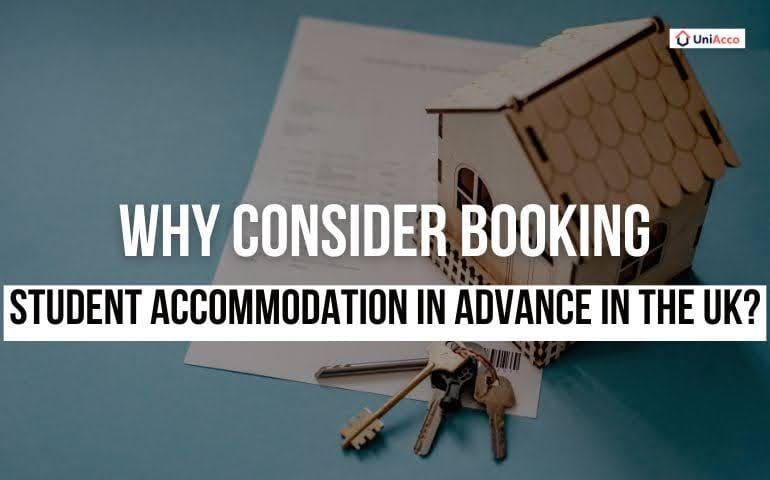A surprising shift has been reshaping the UK student housing scene. As of 2024, more than 56% of students now live in private accommodation, signalling a clear tilt toward life beyond campus gates. And for international students landing in a new country, this choice, off campus vs on campus accommodation, does far more than decide where you sleep. It shapes your routine, your independence, your comfort, and even your monthly budget.
With campus halls offering structure and community, and off-campus options promising freedom and better value, the decision isn’t always simple. This guide breaks down the differences, trade-offs, costs, and lived realities so you can choose the setup that genuinely works for you.
On Campus vs Off Campus: At a Glance
| Criteria | On-Campus Housing | Off-Campus Housing | Choose If |
| Rent | Higher, usually all-inclusive (utilities, Wi-Fi, maintenance). | Often cheaper when shared; bills handled separately. | You want predictable costs or zero bill management. |
| Privacy | Moderate; shared spaces depending on room type. | Higher; private rooms/apartments offer more control. | You prefer personal space and quiet living. |
| Social Life | Strong community vibe with built-in events. | Independent; depends on flatmates and neighbourhood. | You want an instant social circle. |
| Amenities | Uni-managed: laundry, study rooms, gyms, common areas. | Varies by property; basics to premium PBSA amenities. | You want guaranteed access to campus-style facilities. |
| Flexibility | Fixed academic contracts; stricter rules. | Choice in lease length, location, furnishing, and lifestyle. | You prefer autonomy in how and where you live. |
| Location | On or very near campus for easy access. | Broader neighbourhood options; may require commuting. | You want minimal travel time to classes. |
| Bills | Included in rent. No setup needed. | Managed separately by tenants. | You want hassle-free budgeting. |
In summary, on-campus housing gives you convenience, structure, and an instant community, which is a great fit if you prefer a guided start to university life. Off-campus accommodation, however, often delivers better value, more privacy, and the kind of independence that mirrors real-world living.
The right choice depends on whether you prioritise comfort and proximity, or flexibility and long-term affordability.
Also Read: Accommodation for Students in the UK: A Complete Overview
What is On-Campus Accommodation?
On-campus accommodation refers to housing owned or managed by the university, located on or very close to campus. It is designed specifically for students and typically includes options such as halls of residence, dormitories, or university-managed apartments, often with furnished rooms and shared facilities.
On-campus housing is best suited for:
- First-year and international students adjusting to a new environment.
- Students who want easy access to classes and campus facilities.
- Those looking for a built-in social community and structured support.
- Students who prefer all-inclusive bills and simplified living.
Types of On-Campus Accommodation

1. Halls of Residence
University Halls of Residence are traditional student dorm-style buildings owned and managed by the university. Rooms may be standard, en-suite, or catered, with shared communal spaces such as kitchens and common rooms.
Ideal for: Freshers & international students looking for community living.
Here are a few examples of University Halls of Residence
| University | Residence Type | Avg Weekly Cost |
| University of Bristol | Standard & En-suite halls | £130 – £250/week |
| Newcastle University | Park View / Castle Leazes | £160 – £194/week |
| University of Bath | Eastwood / Carpenter House | £166 – £305/week |
2. University-Managed Apartments
University-Managed Apartments are self-contained or semi-private units managed by the university. These offer more privacy, often with a private bathroom and kitchen, while still benefiting from university security and support.
Ideal for: Postgraduates & second/third-year students.
Here are a few examples of University-Managed Apartments
| University | Accommodation Type | Avg Weekly Cost |
| University of Bath | Studio & Ensuite Flats | £230 – £305/week |
| University of Reading | Studio / Premium Apartments | £176 – £285/week |
| University of Manchester | Weston Hall & Burkhardt House | £175 – £290/week |
3. Shared Rooms
Shared rooms offer shared bedrooms and kitchen/bathroom facilities within university-managed halls. These are usually the most affordable on-campus options and offer a strong social environment.
Ideal for: Students on a budget & those comfortable sharing space.
| University | Shared Room Option | Avg Weekly Cost |
| University of Edinburgh | Shared Twin Rooms | From £110/week |
| London School of Economics | Shared, non-ensuite halls | £100 – £165/week |
| University of Glasgow | Shared flats | From £120/week |
Key Features of On-Campus Accommodation
- Security & 24/7 Support: Many university halls provide round-the-clock reception or security. For example, the University of Southampton halls have 24/7 reception and security. For international students, this gives peace of mind.
- Communal Facilities & Shared Amenities: On-campus housing typically includes shared kitchens, bathrooms (unless en-suite), laundry rooms, common rooms or lounges, and study/quiet spaces. Some halls go beyond the basics, offering gyms, recreation rooms, social spaces and even sports or music rooms, depending on the university. These communal or shared spaces make socialising, meeting peers, and forming community much easier.
- All-Inclusive Bills: Many university-managed residences include heating, electricity, water, and often internet in the rent, which simplifies budgeting. Some halls even include extras like contents insurance or maintenance services, reducing the hassle of setting up utilities or dealing with repairs.
- Proximity to Campus: Being located on or close to campus means you’re just minutes away from lecture halls, libraries, labs, student services, transport, and everything you need as a student. This proximity saves commute time and makes it easier to join campus activities spontaneously.
- Community, Social Life and Student Support: On-campus accommodation often helps new students to meet peers, make friends, and integrate into campus life quickly. Many university housing offices encourage social interaction, and halls become a hub for events and student life. For international students or freshers unfamiliar with the city or system, this community support is often a major benefit.
Pros & Cons of On-Campus Housing
| Pros | Cons |
| High security: Key-card entry, CCTV, and on-site staff ensure a safe environment for new and international students. | Higher rent & limited options: Often pricier than shared off-campus homes, with little control over room allocation. |
| Minutes from classes: Quick access to lecture halls, libraries, labs, and student services. | Less privacy: Shared kitchens, bathrooms, and stricter community rules can feel restrictive. |
| Bills included: Wi-Fi, utilities, and maintenance are covered, making budgeting simple. | Fixed contracts: Academic-year leases offer little flexibility to move or travel. |
| Instant community: Easy to meet people and join activities, ideal for first-year students. | Noise & shared-space issues: High-density living can lead to disturbances. |
| Low-maintenance living: No dealing with landlords, bills, repairs, or utility setup. | Less control: You can’t always choose your roommates, building, or room layout. |
To get the full view of off campus vs on campus housing, the next step is understanding what off-campus living brings to the table.
What is Off-Campus Accommodation?
Off-campus accommodation refers to housing provided by private landlords, property agencies, or purpose-built student accommodation (PBSA) providers near the university area. Unlike university halls, off-campus living gives students greater independence, privacy, and flexibility, letting them choose their location, roommate group, rent structure, and contract duration.
On-campus housing is best suited for:
- Second- or third-year students, or those familiar with the city and university life.
- Students who prefer privacy, independence, and control over their living environment.
- Those who want flexible lease options or more freedom in choosing roommates, furniture, and facilities.
- Students looking for more budget-friendly choices, especially in cities where shared rentals can be cheaper than en-suite halls.
- Postgraduates or working students who prefer quieter spaces away from campus activity.
- Anyone who wants a lifestyle closer to city amenities, shops, cafés, nightlife, or workplace access.
Types of Off-Campus Accommodation

1. Private rentals
Private rentals refer to student housing independently managed by private landlords, letting agents, or property companies. These include shared houses (HMOs), private flats, studio apartments, and house/flat shares, often located in residential neighbourhoods surrounding the university.
Students renting privately typically sign a tenancy agreement, choose their own flatmates, and manage utilities, internet, transport, and maintenance responsibilities themselves. This option provides greater independence, privacy, and control over living arrangements compared to university-managed halls.
Average Cost across the UK:
| City | Avg Monthly Cost |
| London | £1,000 – £1,500 |
| Manchester | £600 – £1,200 |
| Sheffield | £400 |
| Leicester | £500 – £900 |
| Edinburgh | £500 – £1,000 |
| Glasgow | £500 – £1,000 |
| Birmingham | £600 – £1,200 |
Ideal For:
- Students who prefer independence, flexibility and privacy
- Students who prefer choosing their own roommates, contract length, and living style
- Second-year, final-year or postgraduate students familiar with the city
- Students seeking more space and home-like living environments
- Students who want to live closer to city amenities, cafés, work placements or nightlife
- Students comfortable managing bills, maintenance, and tenancy agreements
Also Read: Private Student Accommodation in 2025: Guide for Students & Parents
2. Purpose-Built Student Accommodation (PBSA)
PBSAs are modern student-only residential buildings run by professional accommodation providers, offering fully furnished rooms, ensuite or studio options, and premium shared facilities such as study lounges, gyms, cinema rooms, and social spaces.
They are typically all-inclusive (utilities, Wi-Fi, maintenance and security included in rent), making them convenient and hassle-free. PBSAs are usually located close to universities or major transport links and provide a supportive community environment that balances independence with structured support.
Average Cost across the UK:
| City | Avg Weekly Cost |
| London | £130 – £1200 |
| Manchester | £129 – £554 |
| Sheffield | £73 – £177 |
| Leicester | £85 – £215 |
| Edinburgh | £160 – £584 |
| Glasgow | £140 – £299 |
| Birmingham | £201 – £625 |
Ideal For:
- Students who want premium amenities and modern living
- International and first-year students seeking safety and support
- Students who prefer all-inclusive bills and minimal setup effort
- Students who enjoy community activities and social events
Want a closer look at PBSA life? This video takes you inside Buchanan View, Glasgow, highlighting private rooms, shared amenities, and the community vibe that make PBSAs a popular off-campus choice.
3. Shared Flats
Shared flats are privately rented apartments or houses where multiple students live together and share common spaces such as the kitchen, living room, and sometimes bathrooms. Each student usually has their own bedroom, while communal facilities are shared among flatmates.
Shared flats offer a more social, home-like environment and are typically more affordable than studios or PBSAs because rent and bills are shared among residents. Students may rent directly from private landlords or letting agencies, and they usually manage bills, maintenance, and tenancy agreements independently.
Average Cost across the UK:
| City | Avg Monthly Cost |
| London | £850–£1,100 |
| Manchester | £650–£750 |
| Sheffield | £450–£650 |
| Leicester | £450–£550 |
| Edinburgh | £650–£850 |
| Glasgow | £550–£750 |
| Birmingham | £550–£750 |
Ideal For:
- Students who want a budget-friendly living arrangement
- Students preferring independent living without university rules
- Students who enjoy a social home environment with chosen flatmates
- Students wanting more space and a home-like atmosphere
- Second-year, final-year or postgraduate students familiar with the city
- Students who want to experience living in the local community beyond campus
4. Homestays
Homestays involve living with a local host family in their home, where students rent a private bedroom and share common spaces such as the kitchen, living room, and sometimes bathrooms. Many homestays include meal options (half-board or full-board) and offer a supportive, culturally immersive environment, especially valuable for students new to the UK.
Homestays are typically arranged through verified agencies or university-approved host networks, ensuring safety standards, background checks, and appropriate placement based on preferences such as dietary needs, language support, or lifestyle considerations.
Average Cost across the UK:
| City | Avg Weekly Cost |
| London | £200-£300 |
| Manchester | £200-£260 |
| Sheffield | £170-£220 |
| Leicester | £200–£260 |
| Edinburgh | £200-£260 |
| Glasgow | £190-£240 |
| Birmingham | £180-£210 |
Ideal For:
- International or first-year students wanting a supportive family environment
- Students preferring structured living with meals included
- Students who want to improve their English fluency through daily communication
- Students preferring a quiet, home-style environment
- Students seeking a smooth transition to independent living
- Students valuing safety and personal care
5. Co-living
Co-living is a modern housing model where students and young professionals live together in fully furnished shared buildings that offer private bedrooms with shared or en-suite bathrooms, and large communal spaces such as kitchens, lounges, gyms, co-working rooms and social areas.
Unlike traditional shared flats, co-living spaces are usually run by professional operators and include all-inclusive bills, housekeeping, maintenance, and organised community events, making day-to-day living simple and community-driven. Co-living blends independence with the community feel of student life, offering a lifestyle-centric approach to accommodation.
Average Cost across the UK:
| City | Avg Monthly Cost |
| London | £1,000 – £1,500 |
| Manchester | £650 – £900 |
| Sheffield | £300 – £450 |
| Leicester | £350 – £800 |
| Edinburgh | £500 – £805 |
| Glasgow | £500 – £805 |
| Birmingham | £600 – £750 |
Ideal For:
- Want a community-driven living experience
- Prefer private rooms with shared premium facilities
- Enjoy social events, networking & collaboration
- Appreciate all-inclusive bills and minimal setup
- Are postgraduates, final-year students or young professionals
- Prefer flexibility and a more modern, lifestyle-oriented environment
Also Read: Exploring Student Off-Campus Housing: Your Guide to Flexible Living Options
Key Features of Off-Campus Accommodation
- Widely Used & Growing Among Students: A substantial portion of UK students live off-campus. In a 2024-25 survey, the most common term-time accommodation was “private rented houses or flats” for many students, suggesting off-campus remains a major housing option.
- Flexibility & Independence: Off-campus properties allow students to choose their flatmates, neighbourhood, length of lease, and type of housing, whether shared houses, studios, or private flats. This is explicitly described as a benefit of off-campus housing. This flexibility supports students who need longer leases, different living arrangements, or specific lifestyle choices, something more difficult in fixed university halls setups.
- Cost-Effectiveness When Sharing Rent/ Utilities: Renting a house or flat privately with multiple students means the rent and bills are split, often making off-campus living more budget-friendly than individual studios or halls with higher rents. The flexibility to pick roommates and share costs gives students a chance to manage budgets better, especially in cities outside premium zones or away from city-centre price surges.
- Access to Broader Lifestyle & City Amenities: Off-campus housing allows students to live where they want, maybe closer to shops, part-time jobs, nightlife, public transport or city amenities, rather than being restricted to campus-based halls. This option supports a more “real-world” living experience, helping students balance studies with work, social life, and personal independence.
- Privacy and Autonomy: Unlike halls of residence or campus-managed accommodation, which often come with rules about guest policies, curfews, shared facilities, off-campus housing gives students more control over their environment (who they live with, how they live, when they cook or study). For many students, especially in later years or postgraduates, this autonomy and privacy is a major advantage over communal dorm-style living.
Pros & Cons of Off-Campus Housing
| Pros | Cons |
| More affordable: Shared houses or flats often cost less than university halls. | Possible longer commute: Travel time varies based on neighbourhood. |
| Flexible choices: Pick your lease length, room type, and preferred location. | Bills to manage: Electricity, Wi-Fi, and water are usually handled separately. |
| Greater independence: Builds budgeting, cooking, and day-to-day life skills. | Property risks: Landlords and listings need verification to avoid issues. |
| Variety of neighbourhoods: Live closer to city life, part-time jobs, and local culture. | More responsibility: Cleaning, repairs, and upkeep fall on you. |
| More privacy: Private rooms and fewer rules than dorm-style living. | Potential isolation: Experience depends heavily on flatmates and the community. |
Want unfiltered student opinions on dorms vs independent living? This Reddit thread features honest experiences from current and former campus dwellers debating life in dorms vs off‑campus accommodation.
Is living on campus better than off campus? – r/college from r/college
Factors to Consider When Choosing Your Student Accommodation
The UK student housing market is shifting fast. PBSA and direct-let options now account for 44% of the 743,000 student beds available, with 88,000 added by private operators in the past five years. Even with visa-related uncertainties, undergraduate demand continues to rise (+2.8% for 2025/26). With competition for quality rooms increasing, picking the right accommodation matters more than ever.
1. Distance, Daily Routine & Lifestyle Fit
Living closer to campus saves time and keeps your day simple. But many students prefer modern PBSA buildings or neighbourhoods with better privacy, local shops, part-time work options, and a more balanced social life. Your choice depends on how you want your daily routine to feel: convenience or a broader city experience.
Also Read: Location vs Price: The Myth Students Should Stop Believing
2. Rent, Total Costs & Real Affordability
Budgeting isn’t only about rent. You need to consider utilities, internet, deposits, groceries, transport, and any extra charges. PBSA typically offers all-inclusive pricing, which helps with planning. Demand trends show that students want cost-efficient, good-quality rooms, especially as lower-priced properties saw a 4.14% increase in rents this year. Comparing what you get for the price is essential.
3. Community, Social Life & Support
Your environment shapes your first year. PBSA properties often have mixed-year residents, organised events, and strong community support, making it easier to meet people and settle in. For many international students, this structure offers comfort without feeling restricted.
4. Contract Flexibility & Duration
Different accommodations come with different commitments. University halls usually follow fixed academic-year contracts, while many PBSAs offer a wider range, including short stays, summer stays, and flexible arrival dates. Understanding contract rules, payments, and exit clauses upfront helps you avoid surprises.
5. Safety Standards & Building Security
Safety should always be non-negotiable. Many PBSAs offer controlled entry, CCTV, on-site teams, and well-maintained premises. Being in student-friendly zones also reduces late-night travel concerns and adds peace of mind.
6. Facilities, Utilities & Everyday Convenience
Look for reliable Wi-Fi, laundry rooms, study spaces, common areas, and access to shops or transport. Comfort comes from good day-to-day living, not just the room itself. Well-designed PBSAs often excel here, offering amenities students rely on every day.
Tips for Making the Most of Your Accommodation
Making the most of where you live is all about being proactive, organised, and open to new experiences. Here are a few simple tips to help you settle in smoothly, build a supportive community, and create a comfortable environment that feels like home.
If You Choose On-Campus Accommodation
- Join Early Activities: Social events, society fairs, and residence gatherings help you settle in fast. The earlier you show up, the easier it is to form a circle of friends and feel grounded.
- Connect with Roommates: Introduce yourself, discuss expectations, and sort out basics like cleaning and quiet times. Clear communication from day one prevents friction later.
- Use Campus Services Wisely: Maintenance support, study lounges, laundry rooms, and common areas exist to make your life simpler. Lean on these services instead of trying to manage everything alone.
- Keep a Study–Life Rhythm: Campus life can get lively. Build a routine that includes focused study hours, using libraries or designated quiet zones, so you don’t fall behind.
- Personalise Your Space Responsibly: Small décor changes can make your room comfortable and calming. Stick to hall guidelines, but create a corner that feels like your own.
If You Choose Off-Campus Accommodation
- Verify Before You Sign: Check the contract, deposit terms, bills, and safety documents. Always inspect the property or request a video tour. It protects you from unreliable landlords and hidden issues.
- Set Shared Expectations Early: If you’re sharing, align on bills, cleaning, groceries, and house rules. Clear agreements keep the home running smoothly.
- Plan Your Full Budget: Factor in utilities, Wi-Fi, groceries, and travel. A realistic monthly budget helps you stay comfortable without surprises.
- Evaluate Commute and Connectivity: Confirm transport options, frequency, and travel time. A cheaper room isn’t worth it if the commute eats into your day.
- Stay Structured and Responsible: Off-campus living builds real-life skills. Keep your space tidy, track bills, communicate openly, and maintain a routine that fits your academic load.
Explore student accommodation in the UK with UniAcco. Find verified, all-inclusive PBSA options to suit your lifestyle and budget.
🏠 Browse Verified UK Student AccommodationsWrapping Up!

A clearer picture emerges once you weigh off campus vs on campus living against what you actually want from your university years. Convenience and structure appeal to some; flexibility, value, and a taste of real-life independence appeal to others. The point isn’t which option is “better”, it’s which one feels right for the way you study, socialise, budget, and grow.
Exploring off-campus possibilities becomes far easier when you’re not sifting through uncertain listings or guessing neighbourhoods. With UniAcco, you get verified rooms, transparent pricing, and support that stays with you from your first search to the day you move in. The right home fits your budget and supports the version of you that’s building a future.















0 Comments